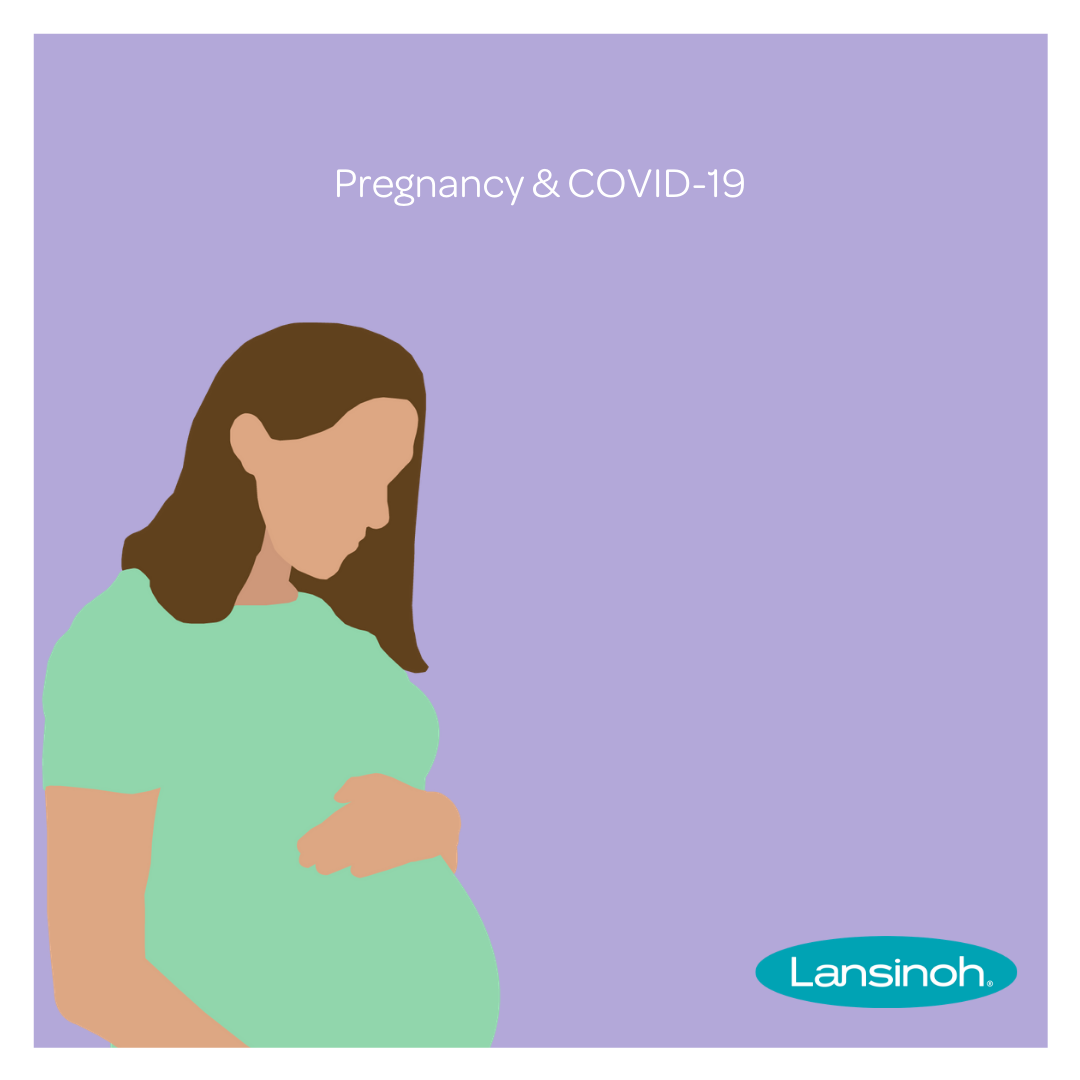Rådgivningsartikler
- Hjem
- Rådgivningsartikler
- Graviditet
- Pregnancy and the Novel Coronavirus
Pregnancy and the Novel Coronavirus

What Pregnant Mums Should Know About Coronavirus
You haven’t even met your baby yet, but you’re doing everything that you can to ensure a healthy pregnancy. With the novel Coronavirus (COVID-19) on everyone’s mind right now, you may be wondering how to keep yourself and your growing baby safe.
Because COVID-19 is so new, doctors and researchers don’t know everything about the virus yet.
“We are still learning the epidemiology of COVID-19 and how it might be different from typical coronaviruses, [so] the current recommendations are much more conservative,” says Alexis Davis, MD, MS Epi, a NICU Director and Lansinoh Clinical Advisory Board member.
Here’s what experts do know:
COVID-19 and pregnancy
During pregnancy, women may be more susceptible to viral illnesses in general, including COVID-19, due to normal changes which take place in the immune system when carrying a baby. Because of this, it’s possible that pregnant women may become sicker than they might have been before pregnancy. The Centers for Disease Control and Prevention recommends that all pregnant women should be vigilant about hand washing and avoiding sick people to lower their risk of becoming ill.
It’s unclear whether COVID-19 could be transmitted from a pregnant mum to her baby, but the chances of transmission in the womb are small. A recent study of mothers in China showed that of thirty-three infected mothers who gave birth, only three newborns tested positive for the virus. And it’s not entirely clear how they acquired the disease, whether before birth, during the birth process, or after birth. All newborns who tested positive recovered from the illness.
The virus is believed to primarily spread when a sick person coughs or sneezes near someone who hasn’t been infected, the way that flu and other respiratory diseases are transmitted. It may also be possible to get COVID-19 by touching surfaces (worktops, doorknobs) that have droplets containing the virus on them, and then touching your eyes, nose, or mouth. This is how the flu and other viruses may be transmitted. So the best way to keep yourself and your baby healthy is by following the recommendations for the
Because the circumstances vary so much from region to region right now, local medical facilities are developing their own processes to best handle the situation. Stay in touch with your healthcare provider to stay informed of any changing procedures.
Coping with a pandemic
This is an emotional time in our history, so it’s natural to feel worried or have strong feelings about what you hear in the news. On top of that, being pregnant may make you feel more emotional than usual, because of normal hormone changes which take place in your body. During your pregnancy, it’s important to keep tabs on your emotional health, as well as your physical health. If you become fixated on upsetting news, take steps to scale back your exposure to stressful people or information.
Limit the amount of time that you spend reading or listening to news about COVID-19. If your social media feeds contain a lot of updates about the impact of the disease, you may want to minimise your time scrolling through Facebook, Twitter, and Instagram, as well.
Connect frequently with people who are positive influences in your life, and spend time talking about things which make you happy. Even with social distancing, you can “get together” with friends and relatives by phone call or video chat to talk about your day, your pregnancy, and things which bring you joy.
Follow a routine every day, taking time to eat healthily, exercise, work, and practice gratitude. The structure and consistency may help you feel calmer and in control.
If you’re feeling extremely sad, anxious, or exhausted and you’re finding it hard to take care of yourself or accomplish things on your to-do list, talk to your doctor or a mental-health provider about your emotions. Some pregnant women experience perinatal depression (depression during pregnancy); it may be more common among women with a history of depression. Perinatal depression won’t go away on its own, but it can be treated, so seeking help is crucial for you and your growing baby.
Other considerations
Frequent hand washing is an excellent way to reduce your risk of many viruses, including COVID-19.
“It’s not enough to quickly wash your hands; you need to spend at least 30 seconds lathering and scrubbing,” Davis says. “If hands aren’t soiled, then hand sanitise is acceptable, but it’s important that often-neglected surfaces, like between the fingers or under the nails, be attended to.”
If you develop symptoms which suggest that you may have COVID-19, experts recommend that you seek care early. Possible symptoms include a fever, a dry cough and feeling short of breath (or having trouble breathing). Call you healthcare provider if you experience these symptoms.
All content found on the Lansinoh.co.uk website, including text, images, audio, or other formats were created for informational purposes only. The content is not intended to be a substitute for professional medical advice, diagnosis, or treatment. Always seek the advice of your physician or other qualified health provider with any questions you may have regarding a medical condition. Never disregard professional medical advice or delay in seeking it because of something you have read on this website.

